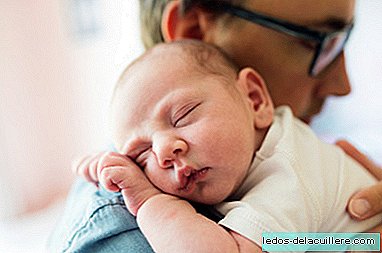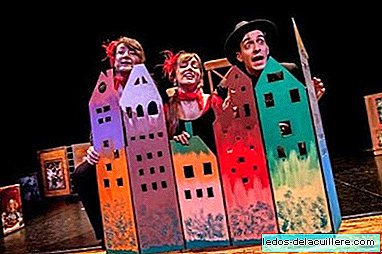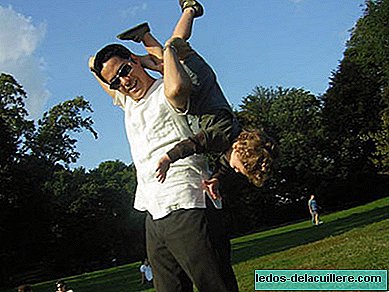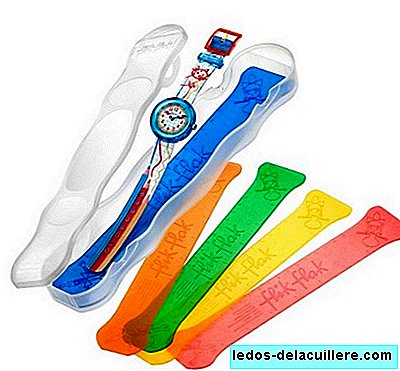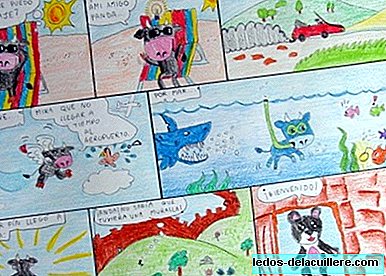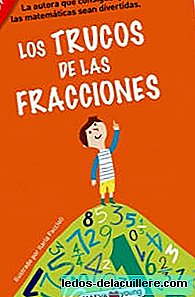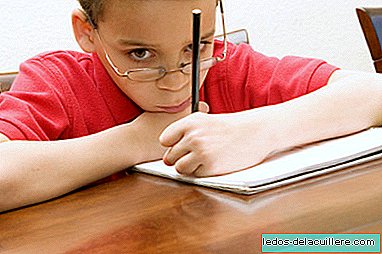
The end of the school year is just around the corner, and the month of June is usually a month of tutoring and meetings with our children's teachers to take stock of the year that ends. In this regard, a friend told me the other day quite worried, that at her school she had been told that her son has passed the course "quite scattered" and "little attentive to teachers' explanations".
In addition, they have recommended him to take a specialist to assess a possible ADHD, although they have not ruled out that he is a student of intellectual abilities. Is it possible that both conditions exist? What characteristics do they have over and over? We explain it to you in detail!
What characteristics do students with high abilities present?
According to the Spanish Association of Pediatrics, children and adolescents with high or gifted abilities are those who show a high performance capacity in the intellectual, creative and / or artistic areas; possess leadership ability or excel in specific academic areas.
They are early children, with a higher than average learning ability, a high level of creativity, high IQ and a wide and rich vocabulary with respect to the rest of children of their age.

Reading this definition and its characteristics, we might mistakenly think that all children with high abilities are bright students with fabulous grades, but nothing is further from reality. In fact, according to data from the Ministry of Education and Science, 70 percent of gifted students have poor school performance and between 30-50 percent school failure.
This is mainly due to the ignorance of the topic by the professionals, and the absence of an appropriate psycho-pedagogical treatment that contributes to motivate the child through an education adjusted to their abilities.Why are the AACC confused with ADHD?
In line with the above, from the Association of High Capabilities and Talents they explain that it is common to think that Children with high abilities are silent, applied students who write perfectly and read without stopping.
However, overflowing intelligence is often associated with restlessness (both physical and mental), rebellion and difficulty accepting rules that are not reasoned, hence it is sometimes confused with an attention deficit hyperactivity disorder (ADHD).
In the Spanish Association of Pediatrics we can read the following about it:
"They show lack of attention, little persistence for the tasks that they consider irrelevant, they start many projects but they finish few, they question rules and they can present conflicts of power with the teachers.""The behavior of the gifted child in class, where they tend to get bored by their high cognitive level, may pose similarity with attention deficit hyperactivity disorder (ADHD)"
"They have difficulty restricting their desire to speak and can annoy others, forget homework and lose jobs, are disorganized. But unlike students with ADHD, these behavior problems do not manifest in all situations or environments"

The Argentine psychologist Paula Irueste, who has been working with children with high capacities for a long time, carried out an investigation between 2010 and 2011 to find out how many of the students of some schools in Córdoba (Argentina) classified as ADHD were, in fact, Children with high capacities.
And he concluded that Teachers often confuse students with high capacities with students with attention deficit, given its high energy, distraction or disinterest in certain issues, confrontation with authority figures, and even academic failure.
"Both in the public and private spheres, teachers recognize the lack of training in special education and specific education in ADHD or High Capacities. It is imperative that teachers be trained, to provide them with contributions that can be applied in their classrooms with children. A teacher with more training will provide a better service to society and feel more supported in his daily work "- highlighted in his thesis, published in 2012.
However, and as we have seen on several occasions,My conditions have substantial differences that must be recognized, as explained by the Spanish Association of Pediatrics:
 Photo via Spanish Association of Pediatrics
Photo via Spanish Association of Pediatrics Can ADHD meet high capacities?
But although high capacities are sometimes confused with attention deficit hyperactivity disorder, there may also be cases of children in whom both conditions converge. We would talk about doubly exceptional students.
This double situation could adversely affect, and even more notably, the student's academic development, because due to his difficulties of concentration and attention, it would be more difficult to achieve the results that would be expected given his high intelligence.
Therefore, and as experts recommend, It is essential to identify both high capacities and ADHD early, to anticipate psychoeducational measures and avoid possible problems in the personal, social and academic fields.
Via Association High Capabilities and Talents, Spanish Association of Pediatrics
In Babies and More Double Exceptional, How to know if my child has high intellectual abilities, Does my child have Attention Deficit Hyperactivity Disorder ?, Basic measures to detect children's intellectual giftedness


